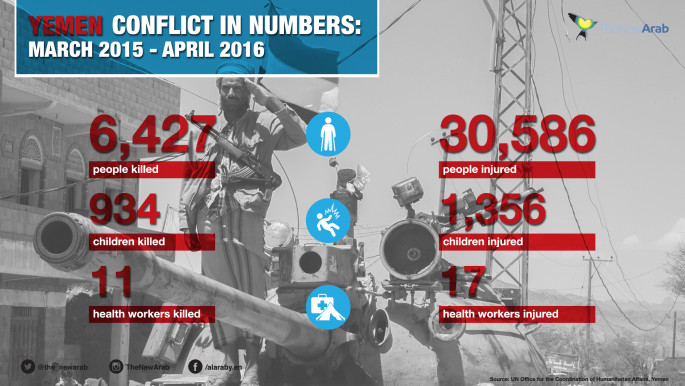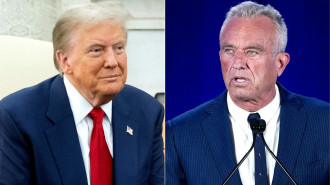Mistrust cripples Yemen's stagnant peace talks
The factions have yet to achieve any major breakthrough and a deal has not been reached, said Yemen's foreign minister and the head of the government delegation, Abdulmalek al-Mikhlafi, who added the opposing teams "have been revolving in a vacuum".
Although Mikhlafi threatened to pull out of talks for a third time should the Houthis "continue to reject peace", UN envoy Ismail Ould Cheikh Ahmed declared "failure is not an option" and urged the rival parties to make concessions.
But the stagnancy has been attributed towards a "persistent mutual distrust" between both sides, according to a Western diplomat closely following the meetings in Kuwait.
Meanwhile, Houthi rebels who agreed to a UN-brokered ceasefire in April have continued to rampage along a variety of fronts across the country.
Likewise, while Saudi Arabia - along with other Gulf backers of the Yemeni government - has shown vocal support for a peaceful resolution to the conflict, Riyadh's coalition aircraft have continued to rumble through Yemen's skies and strike targets on the ground.
The latest developments come just hours after the UAE's announcement of the end of its participation in the Yemen war, suggesting the "war is over for our troops".
The Kuwait-based peace talks are considered to be Yemen's most serious attempt to resolve a conflict that has affected millions in the Arab state.
More than 6,500 people have died since the Saudi-led Arab coalition launched a war against Houthi rebels in March 2015.
An estimated 2.8 million others have been forced to flee their homes - while more than 80 percent of the population are in urgent need of humanitarian assistance. 







 Follow the Middle East's top stories in English at The New Arab on Google News
Follow the Middle East's top stories in English at The New Arab on Google News
![Ben & Jerry's has taken Unilever to court for its alleged attempts to silence it [Getty]](/sites/default/files/styles/image_330x185/public/2024-11/GettyImages-2183900214.jpg?h=199d8c1f&itok=jEcYtQ64)

![The meeting between Musk and Iravani was 'positive', Iranian sources said [Getty]](/sites/default/files/styles/image_330x185/public/2024-11/GettyImages-2184077711.jpg?h=f5c1ac2a&itok=Wb2mIhsF)